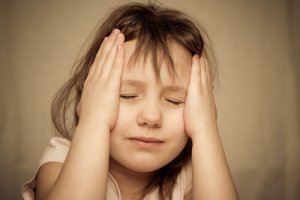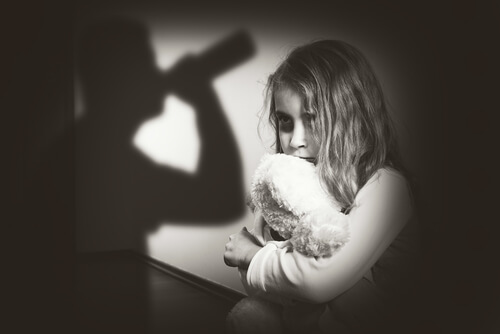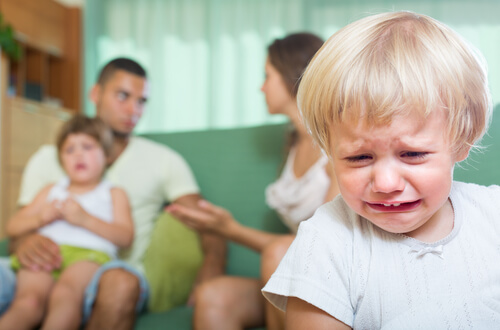The Influence of Traumatic Childhood Experiences

It’s well-known that traumatic childhood experiences can have major effects on adults. But how do these traumatic experiences influence children in their daily lives? How does it affect their behavior? How does it influence the way they learn?
One recent study analyzed how adverse experiences in early childhood, including the imprisonment of a parent and physical and psychological abuse, inhibit the learning and development of children from a very young age. The study was conducted by researchers from the Rutgers Robert Wood Johnson Medical School and was published by Pediatrics, a journal of the American Academy of Pediatrics.
The importance of preschool age for future academic performance
According to the researchers, children in large, urban areas who were exposed to traumatic events during early childhood had an increased risk for developing problems with learning and behavior, starting as early as kindergarten.

The researchers examined data from other studies that looked at adverse experiences in childhood, as reported by their principal caregiver, as well as reports by their teachers about their academic performance and behavior during preschool. This age was chosen because evidence shows that this a time in a child’s life when future academic performance and social abilities can be predicted.
The results of the analysis indicate a pattern in which children who have experienced more adversity demonstrated below average grades, behavior, and social skills. More specifically, their language and literacy skills were below their grade level. Aggression and neglect from their parents increased concern about the behavior of these children.
“Our study results are important because they highlight important risk factors for future academic struggle, adding to the risk for poor health outcomes that already are associated with early childhood exposure to trauma,” said the researchers. “We hope our work encourages collaborations between educators and health professionals to support at-risk children and their families.”
Protecting children from traumatic experiences
Protecting children doesn’t mean putting them in a bubble. However, when they’re that young, their understanding and interpretation of the world is not the same as that of adults.
Psychologist Jesús. F.J. Ramírez Cabañas explains that traumatic experiences that occur before age 11 create three times more emotional and behavioral problems than if they occur later in life. The psychological impact of these situations tends to persist and grow with time.
Nevertheless, parents tend to underestimate the intensity and duration of the stressful situations their children are going through. Reactions vary with age, intellectual capacity, personality, and social factors.

Ramírez Cabañas also explains that the impact that adults leave on the children they take care of has a huge effect on the way they remember traumatic experiences. For example, the traumatic nature of a death in the family can make children feel powerless.
The most common problems that result from post-traumatic stress and other forms of anxiety include pain, depression, defiant and aggressive behavior, physical symptoms, low self-esteem, and social and academic difficulties.
The behavior of children who have suffered from traumatic experiences
Ramírez Cabañas explains that when a child suffers from a traumatic experience, it’s important to act quickly to avoid the effects of post-traumatic stress, which can appear in the form of anxiety, depression, and other disorders. Syndromes should be treated as soon as they appear, which can occur up to three months after the traumatic event.
There’s no reason to expect this will happen, but rather teach the child to relax and immediately turn their negative thoughts into positive ones. It’s also necessary to encourage them to express their feelings and opinions.

The child should use techniques aimed at redirecting their thoughts towards more constructive or distracting activities, like playing, exercising, or participating in group activities. It’s common for children to blame themselves for the traumatic event, so they must be taught not to do this.
Another helpful strategy is to distance them from the information the media reports on the subject, especially from the television, so that they don’t see images related to the event.
This text is provided for informational purposes only and does not replace consultation with a professional. If in doubt, consult your specialist.








